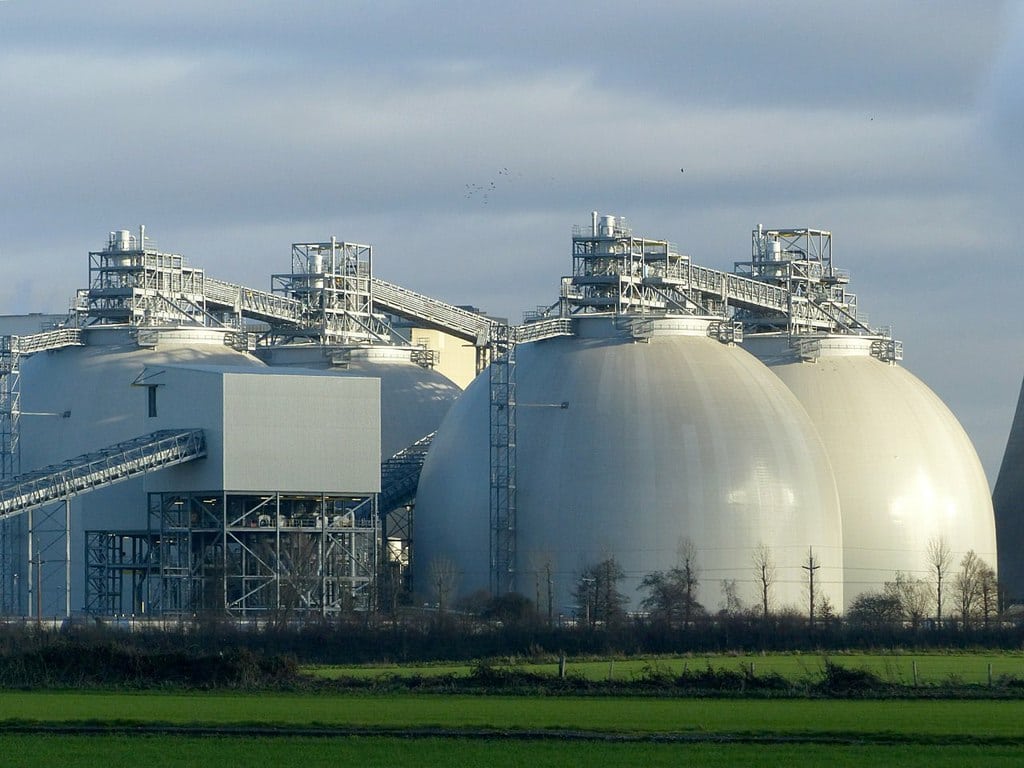British biomass giant Drax is lobbying the Californian government to play host to its first ever “carbon negative” power plant outside of the UK, despite concerns about the sustainability of the energy source.
Drax has long-standing plans to launch the world’s largest bioenergy with carbon capture and storage (BECCS) plant in North Yorkshire, but the former coal-fired power generator now appears to have California in its sights.
BECCS is a controversial technology that captures carbon dioxide from burning organic matter and buries it underground. While advocates promote it as a “carbon negative” climate solution, experts and campaigners have argued that BECCS is technically unproven, and that the practice poses risks for biodiversity, land and food security.
In a submission on Thursday to California’s Draft 2022 Scoping Plan – the state’s climate strategy – Drax argued the U.S. would make an “ideal location” to build its first BECCS project outside the UK, but would require significant political support in the form of government subsidies.
The news has been met with criticism from anti-biomass campaigners, with Gary Hughes from Biofuelwatch arguing that the plan is already favourable towards carbon capture, and that Drax was “riding roughshod” over the fears raised by environmental justice campaigners around emissions, air pollution and biodiversity impacts.
“Drax is trying to take advantage of the policy landscape to see if the plant comes to fruition,” Hughes said.
“Even though this isn’t a concrete proposal, it could prove a conceptual win for Drax,” he added. “It wants California to promote BECCS – and if it can say the ‘global climate leader’ California is on board, they think others will follow.”
‘Ideal Site’
Drax currently has wood pellet processing mills in Arkansas, Louisiana, Mississippi and Alabama, which source its UK power station. The new proposal, which was put to the California Air Resources Board (CARB), the state’s clean air agency, is for a single “negative emissions” BECCS facility to be developed either in California or an unspecified “Southeast U.S.” location.
Drax claims this project would remove 2 megatons (Mt) of CO2 from the atmosphere every year, create 1,000 jobs, and enable California to meet its 2030 climate targets more quickly.
California was an “ideal site” for the proposed plant, the document said, given the “significant volumes of forestry waste biomass” available to support a BECCS plant, with “ideal geology suitable for permanent geologic storage” in the state’s Central Valley.
However, the company has faced criticism over what is treated as “waste” wood.
According to its latest annual report, nearly half (3.1 million tonnes) of Drax’s wood pellets came from sawmill and other wood industry residues, while “thinnings” and “low grade roundwood” from forests accounted for 3.8 million tonnes. Campaigners argue these should not be considered as waste, but can provide biodiversity benefits such as microhabitats for thousands of species, as well as vital carbon sinks.
‘Carbon Negative’
The climate credentials of Drax – which in 2020 was found to be the single largest emitter of carbon dioxide in the UK – and the sustainability of the wood pellets it uses to generate electricity have been increasingly contested in recent years.
The company, which supplies around 5 percent of the UK’s electricity through burning wood pellets, has an ambition to become “carbon negative” by 2030. It has pointed to the Intergovernmental Panel on Climate Change (IPCC), which says sustainable bioenergy is critical to meeting global climate goals.
The energy produced by Drax is classified as renewable under UK and EU law, under the premise that it uses trees which can be replanted to capture carbon.
Drax claims its BECCS technology creates “carbon negative” electricity, since emissions are in theory buried underground, removing more emissions from the atmosphere than are created.
Caution Urged
In the document, Drax makes a pitch for subsidies for the project, stating that it “stands ready to support the government to develop the right frameworks to scale up carbon dioxide removal technologies”.
The company also lists a “case study” of the UK’s BECCS plans, which sets out the planning steps Drax is pursuing to secure governmental support.
Drax is currently trying to secure further subsidies from the UK government, with BECCS plans estimated by energy think tank Ember to cost the energy bill payer over £31.7 billion over the plant’s 25-year lifetime. The planning application has now been accepted for examination by the Planning Inspectorate, with a public consultation expected to open in the coming weeks.
Tomos Harrison, from Ember, said there was still time for policymakers to turn their back on BECCS, both in the UK and the U.S.
“If it goes ahead, Drax’s proposed BECCS project in the UK could cost energy bill-payers billions, while running the real and major risk of failing to deliver any of the negative emissions it promises,” he told DeSmog.
“The role BECCS can play in reaching climate targets is now receiving increased scrutiny and scepticism from British politicians. It is essential that decision-makers in the U.S. avoid running head-long into subsidies for BECCS and instead thoroughly investigate its climate and cost implications before making a decision to support it.”
Drax did not respond to a request for comment.
Subscribe to our newsletter
Stay up to date with DeSmog news and alerts







